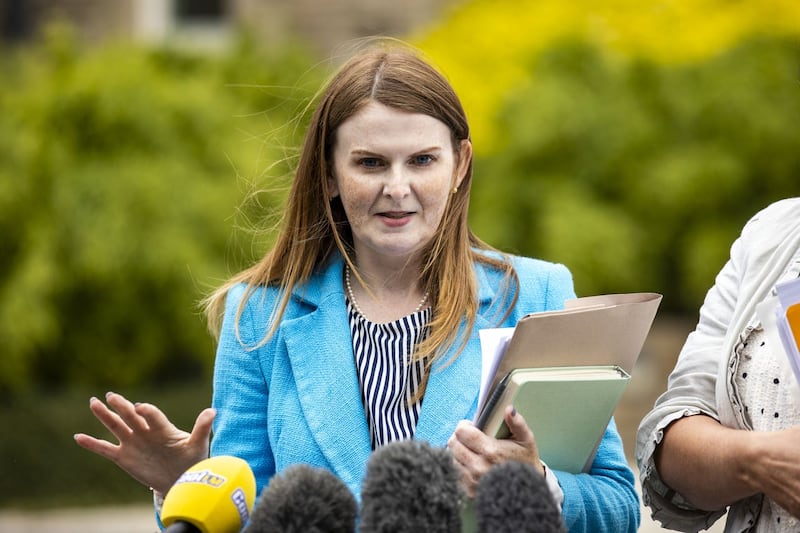The headlines heralded the historic appointment of the first republican ever to lead Northern Ireland’s devolved administration.
There’ll be endless arguments about whether Michelle O’Neill and Emma Little-Pengelly’s office is really a joint one but no-one can deny the symbolism and significance – though Sinn Féin’s having most seats in the executive is arguably a greater advantage in practical terms.
Ms O’Neill’s appointment 21 months after it should’ve happened confines unionist domination of a deliberately gerrymandered ‘Orange state’ to history; it shows that change is possible and that democracy can deliver, at least in electoral terms.
Thirty years since the IRA ended its campaign of violence, the party that was once subordinate to its armed wing is now the largest in Ireland. Its hopes of being in power on both sides of the border have suffered a recent setback but the template to strive for its goal solely by democratic means is now set in stone. In the assembly, Michelle O’Neill made every effort to apologise for republican violence, without disowning it.
Unionism could learn a lot from Sinn Féin’s ability not to sweat what politically-speaking is the ‘small stuff’ and not to get hung-up on symbolism and narratives about the past, or embroiled in culture wars linked to religious belief.
A Sinn Féin first minister doesn’t mean Irish unity is necessarily any closer but it represents the beginning of a new chapter in the north’s history and is undoubtedly a huge gain. Like power-sharing itself and the endorsement of policing and justice structures, Ms O’Neill’s appointment is another building block in the steady process of Sinn Féin normalisation.
But for a normal party, unity is not the only issue it needs to turn its attention to. A broken health service, a crumbling transport network, and a public services funding crisis are among the matters looming in the executive’s in-tray.
Surprise pick for the finance portfolio Caoimhe Archibald, seemingly in the role as a result of a DUP ambush, means the first-time minister has some important decisions to make; cuts and revenue-raising initiatives that may well prove unpopular – that’s the realpolitik.

The challenges this executive faces are different in nature from its pre-RHI predecessors but no less severe. When Sinn Féin and the DUP first embarked on their power-sharing project some 17 years ago, the priority was overcoming mutual suspicion and loathing; they were avowed enemies now in government together, attempting to bring political stability and prosperity without making huge compromises that would alienate their respective bases and give electoral advantage to their rivals. Has much changed?
That task was fulfilled with astounding success by the so-called Chuckle Brothers, whose bond after years of deep animosity served as a lesson to everyone. Peter Robinson took the reins from Ian Paisley and continued in a largely positive, if more business-like, relationship with Martin McGuinness. The period between St Andrews and Robinson’s departure was not without its setbacks but it is regarded as the most stable in power-sharing’s chequered history. Yet in terms of measuring its success, this administration needs to better that record.
Publicly the signals on Saturday in the assembly chamber were good, the Archibald incident notwithstanding. Both the first and deputy first ministers appeared at pains to stress the potential for reconciliation and co-operation. Talk, however, is cheap.
With Alliance holding two seats in the executive and the SDLP in opposition, the dynamic at Stormont is entirely new and untested. At best it could mean delivery, at worst it could destabilise a fledgling administration in which the DUP is likely facing a battle a day on two fronts.
There was optimism in the air on Saturday, coupled with what sounded like a genuine desire to affect change. Let’s hope the executive parties can move beyond platitudes and realise the potential they all claim is there.

